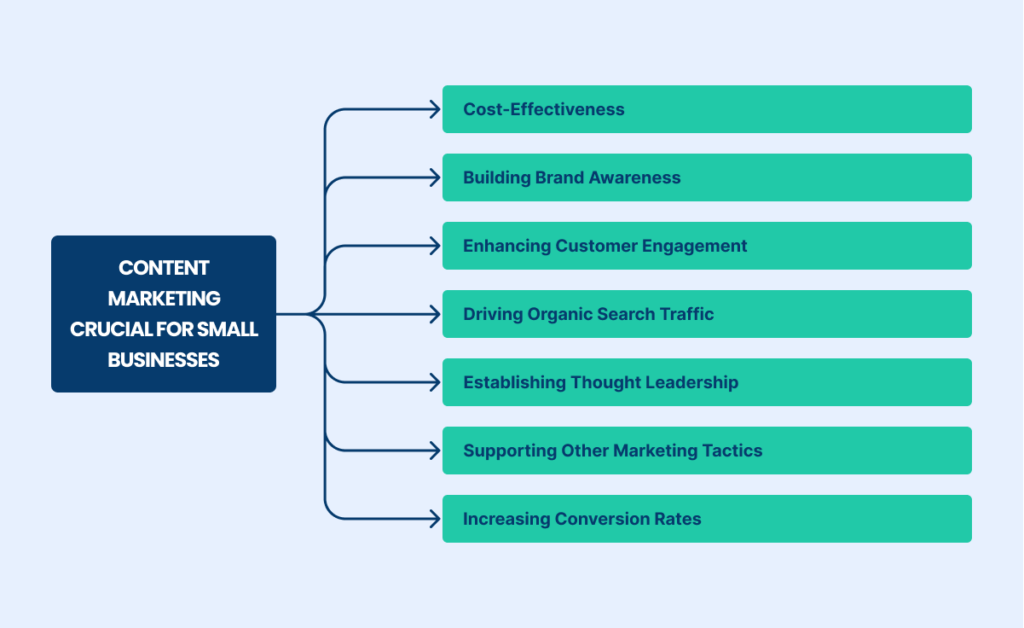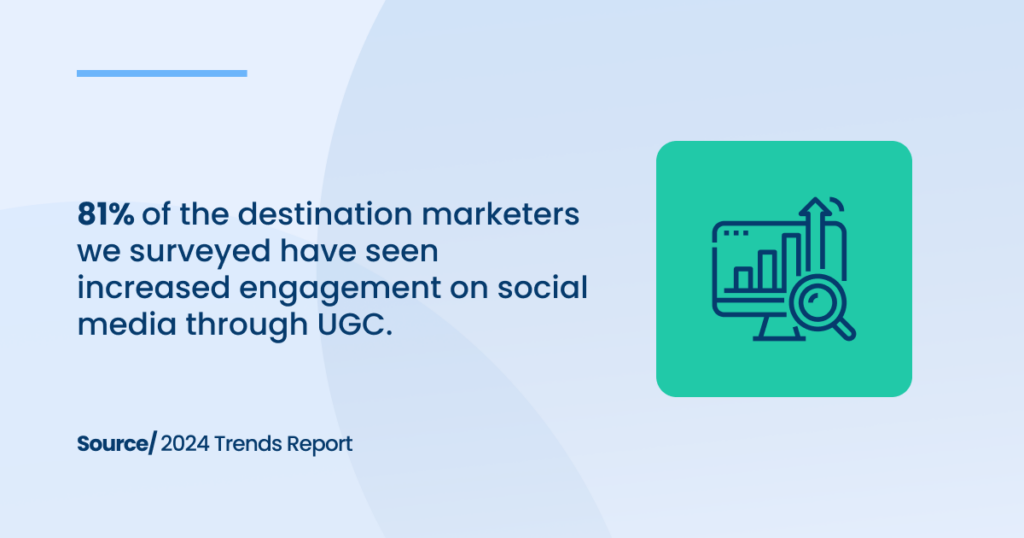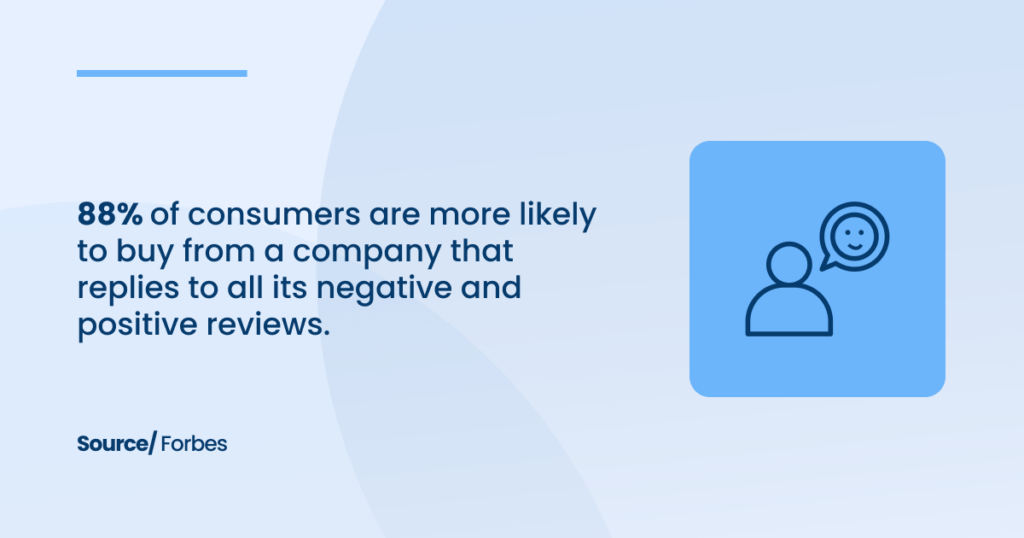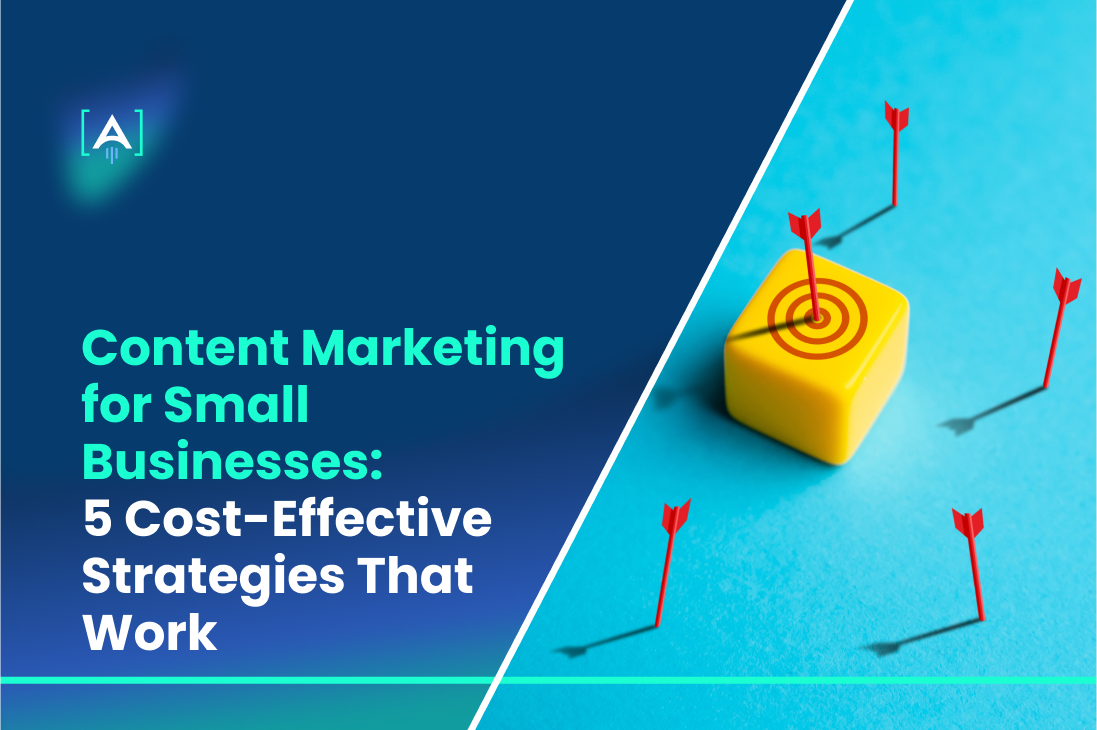How can small businesses stand out in a world dominated by digital giants?
The answer lies in the art of storytelling.
When done right, content marketing is like a powerful magnet, drawing customers in and building lasting relationships.
In a 2024 global survey among marketing and media leaders, approximately 41% reported that their organizations raised their budget for content marketing during the 12 months.
Source: Change in Budget for Content in the Past, Statista
This increase highlights the growing recognition of content marketing’s value in enhancing brand visibility and customer engagement across industries.
You can turn strangers into loyal advocates by sharing valuable information, inspiring stories, and engaging with your audience personally.
Consequently, many businesses seek expertise and apply to a Content Marketing Agency to strategically manage and optimize their marketing activities.
The blog post will explore five cost-effective content marketing strategies that can help your small business thrive.
What is Content Marketing?
Content marketing is a strategic approach focused on creating and distributing valuable, relevant, and consistent content to attract and retain a clearly defined audience.
HubSpot research notes that content marketing is a top priority for marketing teams. It encompasses multimedia formats and has become more interactive and accessible in recent years.
Source: HubSpot
Unlike one-off advertising, content marketing shows that you actually care about your customers.
Today, more than ever, people want to feel like you care about them. The personal connection and trust that content marketing builds help companies develop long-lasting relationships with their customers.
For small businesses, content marketing provides an opportunity to compete with larger companies by leveling the playing field in terms of visibility and engagement.
By focusing efforts on strategies like AI video creation, small businesses can offer unique content that engages customers at a fraction of the cost of traditional marketing methods.
Why Is Content Marketing Crucial for Small Businesses?
Content marketing allows small businesses to establish trust and authority in their industry.
Through strategic use of resources like social media and long-form content, small businesses can enhance their visibility and compete effectively against larger competitors.

Cost-Effective Content Marketing Strategies
Developing the strategy of content marketing for small businesses that maximize impact while minimizing cost is essential.
Small businesses can achieve significant marketing success by focusing on creativity and leveraging existing resources.
1. Leveraging User-Generated Content
User-generated content (UGC) is any form of content—text, videos, images, reviews—created by people rather than brands.
This type of content marketing for small businessesis gold because it involves less production cost and enhances authenticity and trust among your target audience.

Encouraging Customer Reviews and Testimonials
Building Trust and Credibility
One of the most straightforward ways to cultivate UGC is through customer reviews and testimonials.

Small businesses can encourage their customers to leave feedback on various platforms including social media, Google, and other relevant industry websites. These reviews do not just build content volume but also boost credibility.
Implementing a simple automated email asking customers for a review post-purchase or offering a small incentive for leaving a testimonial can significantly increase your collection of authentic customer feedback.
Optimizing for Search Engines
Customer reviews can also be optimized for search engines. Incorporate AI video creation tools to transform text testimonials into engaging video content that can be shared on your website or social media platforms.
The AI video production market is projected to experience a compound annual growth rate (CAGR) of 22.37% by 2028.
Source: Research And Markets
This approach not only provides dynamic content but also improves your video content marketing strategy by enhancing SEO through rich media, which is favored by search engines and can improve rankings.
2. Utilizing Social Media Platforms
Social media platforms are invaluable tools of content marketing for small businesses looking to expand their reach and engage directly with their customers.
Smartly integrating social media into your content marketing strategy can boost brand visibility, enhance customer relationships, and drive conversions effectively.
Choosing the Right Platforms for Your Business: Assessing Your Audience
The first step in choosing the right social media platform is understanding where your target audience spends their time.
Different demographics favor different social media sites. For instance, younger audiences may gravitate towards Instagram and TikTok, while a professional B2B audience might be more active on LinkedIn.
Source: HubSpot
Small business owners should conduct market research to identify their audience’s preferences, which can involve analyzing social media insights from existing profiles, surveying customers directly, or monitoring competitors’ successes on various platforms.
Aligning with Business Goals
Each social media platform offers distinct advantages depending on your business goals.
For instance, if brand awareness is your primary objective, platforms with a broad reach and high engagement levels, like Facebook and Instagram, might be beneficial.
On the other hand, if your goal is to establish thought leadership within your industry, LinkedIn could be a better choice due to its professional network. Aligning the platforms you choose with your overall business and marketing funnel strategies will maximize your efforts and resources.
Content Suitability
Different platforms also cater to different types of content.
Visual platforms like Instagram and Pinterest are ideal for businesses with highly visual products or services, such as fashion, food, or decor.
In contrast, Twitter might be more suitable for those who wish to engage in real-time conversations and updates, making it ideal for media companies or active bloggers.
Source: HubSpot
When creating content, consider the nature of each platform and how well your content can be adapted to meet those conditions.
For example, converting a detailed blog post into a series of engaging Instagram stories or infographics can help capture the attention of users who prefer visual over text-heavy content.
3. Blogging and SEO
Blogging combined with Search Engine Optimization (SEO) is a powerful duo for small businesses looking to enhance their digital presence and drive more organic traffic to their websites.
By creating valuable content that is optimized for search engines, small businesses can significantly improve their visibility online and establish themselves as industry leaders.
Starting a Business Blog: Understanding the Benefits
Starting a business blog can seem daunting for a small business owner, but the benefits are manifold. A blog is not just a platform to share high-quality content; it’s a vital tool for enhancing search engine rankings and engaging customers.
Regularly updated blogs provide fresh content for search engines to index, increasing the likelihood of your business appearing in search results. Furthermore, blogs serve as a medium for word-of-mouth marketing as readers share valuable content across their networks.
Setting Up the Blog
Small businesses should first choose a suitable platform to start a blog. WordPress, Blogger, and Squarespace are popular choices, offering user-friendly interfaces and SEO-friendly features.
The next step is to integrate the blog with your existing website to keep your branding consistent and make it easy for visitors to navigate between your blog and the other sections of your website.
Content Planning
Creating a content strategy is crucial. Plan your topics around your customers’ questions, problems they need solutions to, or insights related to your industry.
Source: HubSpot
This approach ensures the content is relevant and adds value, encouraging more traffic and engagement.
Establish a consistent posting schedule to keep your audience returning for more and signal to search engines that your website is regularly updated.
Basics of SEO for Blogging
Keyword Research
Effective SEO starts with keyword research. Understand what terms your target audience is searching for and how competitive these keywords are.

Incorporate these keywords naturally into your titles, headings, and throughout your blog posts.
On-Page Optimization
Each blog post should be optimized for SEO. This includes using a responsive design that works on desktop and mobile, optimizing meta tags and descriptions with targeted keywords, and structuring your content with proper header tags for easy readability.
Include internal links to other pages on your site to help search engines crawl your site more effectively and to keep visitors engaged longer.
Voice Search Optimization
With the rise of digital assistants, optimizing your content for voice search is becoming increasingly important.
Source: SemRush
Voice search queries tend to be longer and more conversational than text-based searches, so include long-tail keywords and phrases that people are likely to say when using voice search. Structuring your content to answer direct questions can also help you appear in voice search results.
Link Building
Developing a link-building strategy can enhance your blog’s authority and improve search engine rankings.
93.8% of link builders say link quality is more important than link quantity. Reach out to other bloggers or businesses for guest posting opportunities, and encourage your readers to share your content. The more reputable sources link back to your blog, the more trusted it becomes in the eyes of search engines.
4. Email Marketing Campaigns
Email marketing remains one of the most effective strategies for content marketing for small businesses.
It allows for direct communication with your customers and prospects, enabling personalized engagement that can drive conversions and boost customer loyalty.
Source: Forbes
By building a robust email list and crafting engaging email content, small businesses can create impactful campaigns that resonate with their audience and yield significant results.
Craft Compelling Subject Lines
The subject line is the first impression you make on your email recipients and can determine whether or not your email is opened.
Use clear, concise, and intriguing subject lines that prompt recipients to discover more. Testing different subject lines on segments of your list can help you understand what resonates best with your audience.
Use Strong Calls to Action
Every email should include a call to action (CTA) that directs the reader on what to do next. Whether it’s shopping for a product, reading a full article, or registering for a webinar, your CTA should be clear and easy to find.
Source: Azaryan Growth Agency
Using action-oriented text, contrasting button colors, and prominently placing the CTA will increase the chances of engagement.
Optimize for Mobile
With the increasing use of mobile devices to check emails, ensure your email design is responsive.
Emails should be easily readable with adequate spacing and large fonts, and the CTA buttons should be easy to click on a small screen.
5. Video Marketing on a Budget
Video marketing is an incredibly effective tool for engaging and converting customers, especially for small businesses looking to make a significant impact with a limited budget.
Source: Enterprise apps today
With the right strategies and tools, creating and distributing video content doesn’t have to break the bank, but it can still deliver substantial returns in terms of engagement and conversions.
Creating DIY Videos
Plan Your Content Carefully
Before you start filming, it’s crucial to plan your content. Identify the key messages you want to convey and sketch out a basic storyboard.
Focus on creating targeted content that addresses your audience’s specific needs, questions, or interests. This ensures that your video content is relevant and engaging, which is essential for retaining viewer interest.
Use Affordable Equipment
High-quality video doesn’t require expensive equipment. Many small businesses can create great video content using just a smartphone with a good camera.
Invest in a basic tripod to stabilize your shots, and consider a microphone to improve audio quality. Good lighting is crucial, so either shoot in a well-lit room or use inexpensive ring lights or softbox lights to enhance your video’s visual clarity.
Keep It Simple
When creating DIY videos, simplicity is vital.
Focus on clear, concise content that communicates your message without unnecessary complexity. Use simple backgrounds, and avoid clutter that could distract from the main message.
Partner with [A] Growth Agency for Creating an Effective Content Marketing Strategy
Content marketing is a powerful tool to help small businesses achieve significant growth and success.
By creating high-quality, valuable content that resonates with your target audience, you can build brand awareness and generate leads.
[A] Growth Agency will maintain consistency.
Our experienced team specializes in turning entrepreneurial dreams into reality with effective, tailored growth strategies.
We strongly believe in the power of data-driven decision-making and personalized marketing approaches that resonate with your target audience.
Remember, excellence is our standard.
Do you already think about a partnership?

